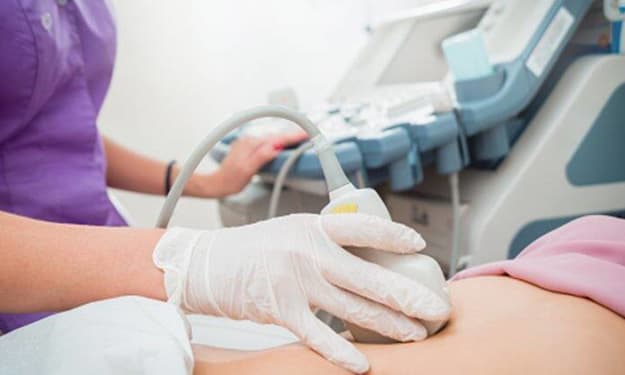
When it comes to sexual and reproductive health, it can be hard to know what's "normal" and what may be a sign of a potential health problem. Even if you feel embarrassed about certain issues, always remember that your gynecologist has seen and heard it all. Gynecologists are just there to help you, not to judge you.
According to a survey, about 24% of the female population admits that they have never visited a gynecologist in their life. Women sometimes feel uncomfortable talking about their privates or answer questions about their sexual habits, physical changes, periods, and health issues with their gynecologist. But, it is crucial to provide complete information about your medial history to your gynecologist to get the proper treatment.
If you have had the same doctor for years, make sure you update your doctor about any changes that have occurred since you last visited them. If you are visiting a new doctor, write down all the information about your health, so you do not forget to discuss something during your appointment. This is important as many women leave out important facts that may help their doctor to make the best healthcare recommendations.
To help you with a process, here’s a list of some essential things that you should always discuss with your gynecologist:
Menstruation Cycle:
For many women, getting your period is an uncomfortable and difficult time. Cramps, headaches, and breast soreness are just a few of the most common unpleasant menstruation symptoms. But for some women, period pain can be incredibly severe.
If your periods are very painful or are getting worse over time, it can be a sign of endometriosis or uterine fibroids. You should consult doctor about this, as there are many remedies they can suggest to manage the conditions. Don’t think the pains are normal as you are on your periods & galop down pain killers, instead consult your gynecologist near you.
Pay Attention to Vaginal Odors:
While vaginal odor can be an uncomfortable topic, it's important to talk to your doctor if there is a foul or fishy smell. A change from your normal smell can be a sign of bacterial overgrowth or vaginal infection. You should definitely consult your doctor if the smells last for more than a few days.
Abnormal Swelling, Growths, or Bumps In & Around the Vagina:
Noticing a growth in your vagina or around your labia can seem like a cause for concern. Is it ingrown hair, a pimple, a cut from shaving, or possibly something more concerning? Bumps in and around the vagina are usually benign, but it is important to have your doctor check it out.
Genital warts are visible for some time, but herpes lesions can heal within seven to 14 days. So it is important to get it checked out when the outbreak occurs. If you notice anything unusual consult your gynecologist.
Discomfort During Sex:
If you feel some sort of discomfort during sex, it is very important to talk to your doctor about it. This may feel like an confining topic to bring up but sexual discomfort can be an indicator of other diseases. It is important for your gynecologist to know about it so they can treat it in time.
One main reason for discomfort during sex can be vaginal dryness. Many women experience vaginal dryness during intercourse. Dryness in the vagina during sex can be dependent on a woman's age and mitigating factors in her life. If a younger woman has this issue and has been on birth control for a long time, there may not be enough estrogen present in her body. If this happens, she may need to change her birth control.
For a busy mom, not be taking enough time to engage in foreplay and arousal before sex, can lead to dryness. If a woman is postmenopausal and has dryness, it can be due to low estrogen, and her gynecologist can prescribe vaginal estrogen. You can also use lubricants to help with the same.
Sexual History:
Discussing sexual history with your gynecologist can be a confining topic. Questions like - how many partners you've had, how old you were when you first had intercourse, if you've had any sexually transmitted diseases (STDs), or about sexual orientation and gender identity are all normal. These questions are important because:
- Cervical Dysplasia & HPV Infection: Having intercourse before the age of 18 can sometimes make you more susceptible to HPV because the cervical-vaginal junction is more pronounced when you're younger. Having more partners can also increase the potential for exposure to cervical dysplasia and HPV infection. Hence it is best to let your doctor check it out.
- STDs - Some STDs can increase the risk for infertility, so physicians want to provide appropriate counseling if that situation arises.
- Ensure the Best Possible Care - Though LGBT communities are diverse, research shows that there are certain health concerns among lesbians, bisexual women, and trans men. Hence your doctor needs to know about your sexual orientation to treat you better.
Urinary or Fecal Leakage:
Experiencing urinary or fecal incontinence can be very stressful and take a toll on your quality of life. It is common for women to experience these symptoms after childbirth, particularly if they had a large baby or a vaginal delivery requiring forceps or a vacuum. During menopause, these symptoms can worsen.
There are medical and surgical options available to manage the same, depending on the nature of the incontinence. Talk to your gynecologist, so she/he can determine the proper treatment for you. They can also refer you to a pelvic floor disorder specialist if necessary.
Low Libido:
Experiencing a low libido is very common in women. Nevertheless, it is important to speak with your gynecologist to make sure everything is alright down there. Different medicines you take can affect libido or it can be a symptom of an underlying medical condition. It can also be a side effect of a known condition.
In these situations, your gynecologist can determine what medical interventions may be necessary. Low libido also depends on the nature of female sexuality — sometimes, your desire to have sex or be intimate can dull down due to the things outside of your control, like stress or work.
Compared to the early states of a relationship, women in long-term relationships are less likely to be spontaneously aroused. Your gynecologist can make recommendations to help you naturally increase your libido in these circumstances. They may also refer you to an appropriate counselor if necessary.
Final Thoughts
You should always inform your gynecologist about your family’s medical history of diseases, including high blood pressure, thyroid disorders, cancer, heart problems, diabetes, and more. Your gynecologist also needs to know everything about your health to treat you properly. This will allow your gynecologist to create a proper plan of care for you.
About the Creator
MediBuddy
MediBuddy - India’s Largest & most Trusted Digital Healthcare Platform for Online Doctor Consultation, Health checkups, Lab tests at home, Online Medicines, wellness & fitness needs.
Download MediBuddy app and Consult Doctor Online.






Comments
There are no comments for this story
Be the first to respond and start the conversation.